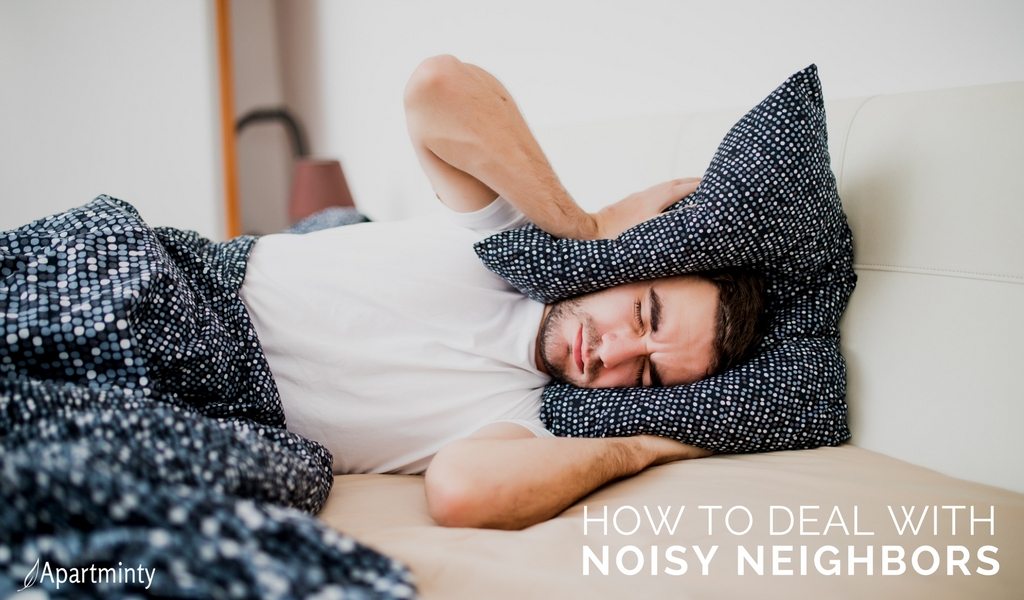
Apartment living comes along with a lot of perks but there are also some potentially unavoidable downfalls. One of the biggest and most frustrating gripes about living with shared walls is having to deal with noisy neighbors. In our experience, these are the most effective steps to take.
Step 1: Talk To Your Neighbor
Just do it. Suck it up and have a grown-up conversation with your neighbor. Knock on their door or leave a note if you’re more comfortable with doing that, but keep it cordial and informative, not accusatory. Take a page out of the Marriage & Family Therapy book and talk about you and your needs, and try to keep the focus on the actual issue at hand versus throwing accusations and making it all about them and what they’re doing wrong/attacking them personally. By this I mean, clearly outline what about your schedule or personal preferences makes their level and timeliness of noise pollution unfavorable. If you work nights and are trying to get some sleep at 5pm when they come home and crank up the tunes, let them know. Your neighbor is not a mind reader and you can’t assume that they are aware and are willingly annoying you or upsetting your routine, and chances are, they have no clue about how disruptive they’re being. In the case of a barking dog, they may genuinely be in the dark about the noise that occurs when they are not home, so give them the chance to remedy the situation before escalating your complaint to the next step.
Obviously, this method is step 1 for a reason – it may or may not work, but you don’t know if you don’t try. If your neighbors are rude, hostile, or simply ignore your requests, then it’s time to take it to step 2.
Step 2: Talk To Your Landlord
If you’ve attempted to resolve the issue with your neighbor directly without any success, now is the time to begin documenting your complaints and instances of the offending behavior. Open up a conversation, ideally via email so you’ll have a record of the complaints and when they occurred, and let the landlord know about the issue you’re dealing with and the steps you’ve taken thus far to try and remedy the situation. Ask your landlord to have a conversation or leave a note with the offending neighbor and maybe even check in with the surrounding apartments to see if and how they are affected. If your neighbors are also affected by the noise, ask them to reach out to your landlord as well (strength in numbers, people!). Follow up with your landlord – in writing – if and when the issue occurs again. If nothing else gets resolved, you may be able to use this record to convince your landlord to let you out of your lease, should it come to that.
Step 3: Control What You Can In Your Own Apartment
Whether steps 1 and 2 are effective or not, you can’t necessarily expect things to change overnight. If you’ll be sticking it out in your current apartment for some time, there are some low-cost steps you can take to make the noise more tolerable. If the noise is coming from above or through the walls, consider switching on your bathroom fan before bedtime or buying a fan to turn on when the noise occurs. Earplugs, a white noise machine, or a white noise app on your phone are all low-cost investments that could make a big difference as well. If the noise is coming from the hallway, invest in a draft protector to slide under your door or door seals to install around the perimeter.
If all else fails, you have 2 options. First, if you really like your apartment building (minus that noisy neighbor), consider asking if you can move to a new apartment within the building, preferably on the top floor or one with fewer shared walls. If this is not a desirable of feasible option, it’s time to talk to your landlord about breaking your lease. With a reasonable paper trail highlighting the ongoing issue, your landlord just may let you out of your lease without penalty.